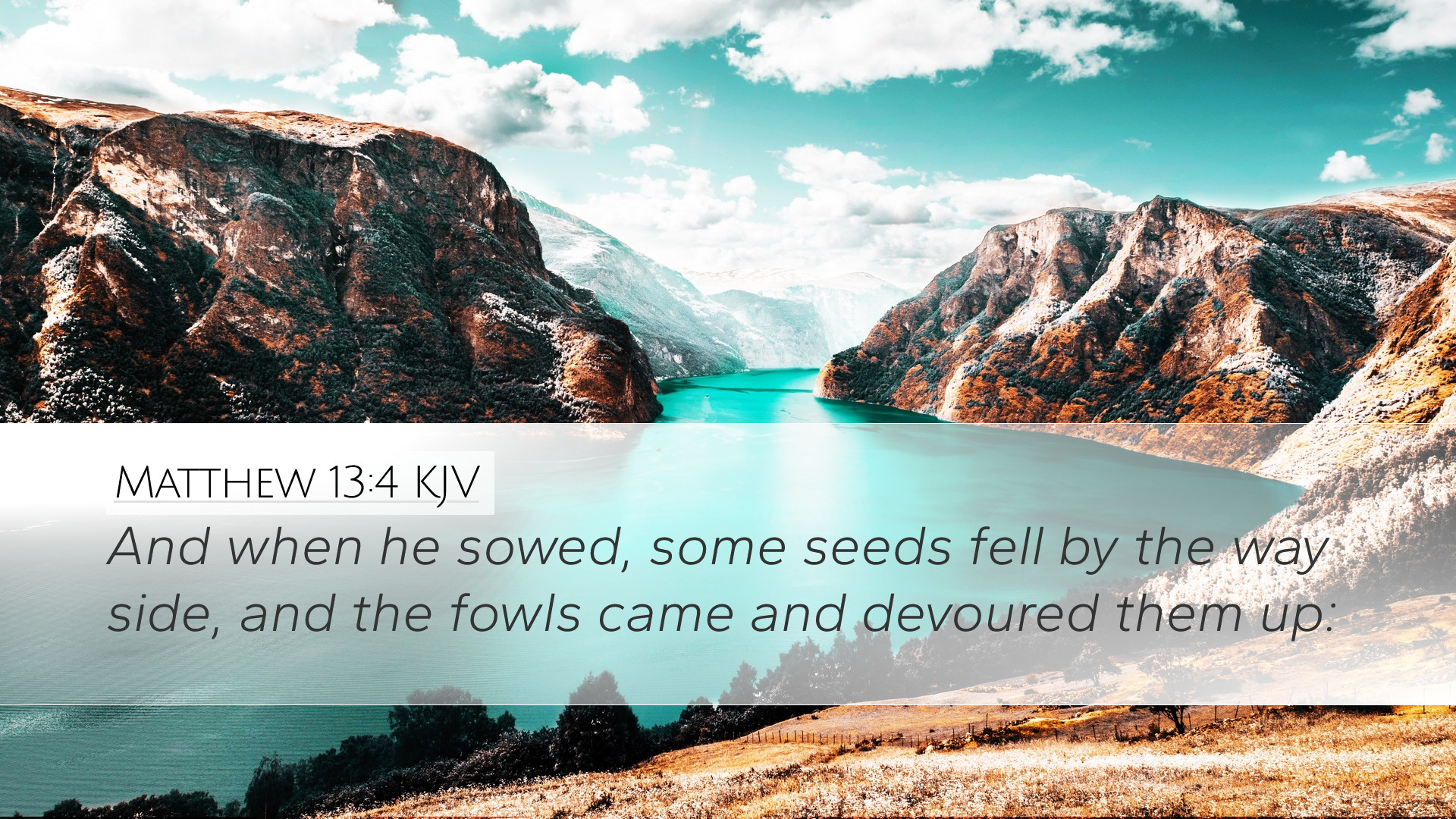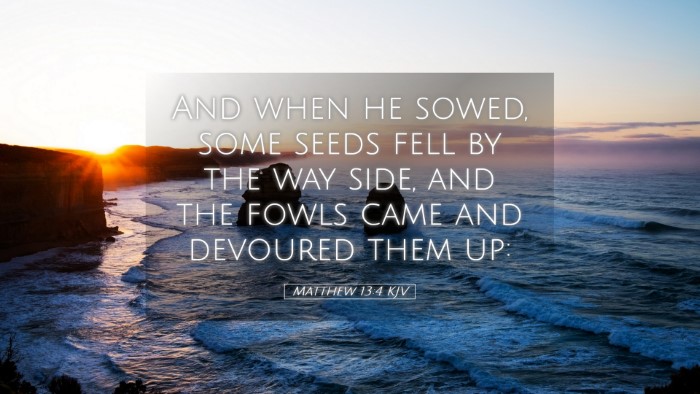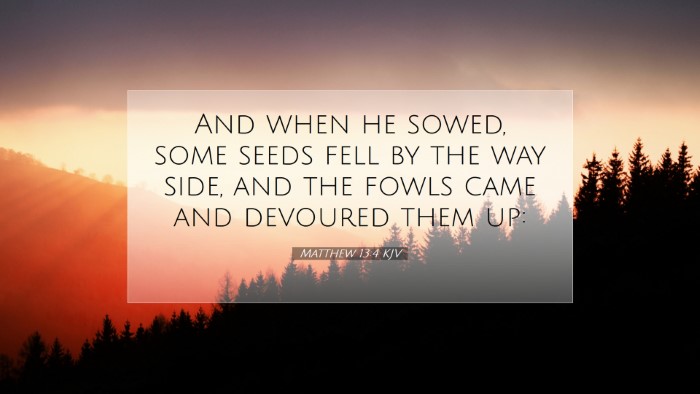Commentary on Matthew 13:4
Matthew 13:4 states: "And as he sowed, some seeds fell by the way side, and the fowls came and devoured them up."
This passage is part of the Parable of the Sower, one of the most significant teachings of Jesus, found in the Gospel of Matthew. It encapsulates profound truths about the reception of God's word in the hearts of individuals.
Context and Overview
In this parable, Jesus describes a sower who scatters seeds indiscriminately across different types of ground. The different responses of the seeds that land on various terrains symbolize the diverse receptions of the message of the Kingdom of Heaven.
Exegesis of Matthew 13:4
This particular verse illustrates the initial scene of the parable. The seed that falls "by the way side" reveals significant insights into human nature and the spiritual realities of hearing God’s word.
-
Location of the Seed: The mention of the “way side” denotes a hardened path, a place where the soil is trampled down, signifying those who are indifferent or resistant to the gospel message. As Adam Clarke notes, this refers to those who are superficial and unresponsive to the truth of God’s word.
-
The Fowls: The "fowls" that come to devour the seeds represent the forces of evil, as indicated by Matthew Henry. This imagery illustrates how easily the word can be snatched away by spiritual adversaries, emphasizing the importance of spiritual vigilance.
-
Implications for Preachers and Teachers: Pastors and theologians must take this verse as a caution about the varied receptivity of their audiences. Like the hard soil, many hearts can be impervious to the message of the Gospel, necessitating prayer and reliance on the Holy Spirit for genuine transformation (Barnes).
Theological Insights
The Parable of the Sower, and particularly this verse, raises important theological questions about human depravity, divine sovereignty, and the nature of human response to God's grace.
-
Human Depravity: The seed that falls by the wayside symbolizes those who do not understand or appreciate the depths of God’s word. This highlights the necessity of enlightenment by the Holy Spirit to engage the goal of genuine conversion (Henry).
-
Divine Sovereignty: The act of sowing is an illustration of God’s grace being abundant and universally available. The uneven reception highlights the role of divine grace in influencing hearts towards salvation (Clarke).
-
Faith and Response: This verse also emphasizes the need for an active and receptive attitude towards God's word. The soil's condition serves as a metaphor for the human heart's readiness to receive the gospel, calling believers to cultivate a spirit of openness and humility (Barnes).
-
Protection from Spiritual Thievery: The swift action of the fowls illustrates the idea that without vigilance and nurturing of the seed sown, spiritual truths can be lost. The necessity of prayer and discipleship is underscored, as these processes help protect the word planted in hearts (Henry).
Practical Applications
The implications of Matthew 13:4 challenge us to reflect on our spiritual condition and the conditions of others as we share the gospel.
-
Self-Examination: Believers are encouraged to assess the condition of their own hearts. Are we receptive to teaching, or have we allowed the cares of this world to harden our hearts?
-
Engagement with the World: The imperative for evangelists is to recognize that not every seed sown will yield a harvest. It serves as a reminder to engage lovingly with the indifferent and to pray for divine illumination over their hearts (Barnes).
-
Commitment to Nurturing: This passage also calls Christian communities to foster environments that nurture faith, love, and biblical literacy to counteract the forces that seek to steal away the word of God (Clarke).
Conclusion
Matthew 13:4, while succinct, contains a wealth of theological, pastoral, and practical insights. It serves as a somber reminder of the realities of spiritual warfare and the necessity of preparing one’s heart to receive the truth. As this verse unfolds within the broader context of the Parable of the Sower, it urges believers to participate actively in the divine gardening of the Kingdom of God, helping to cultivate responsive hearts and protect the seeds of faith from being devoured by the adversary.


